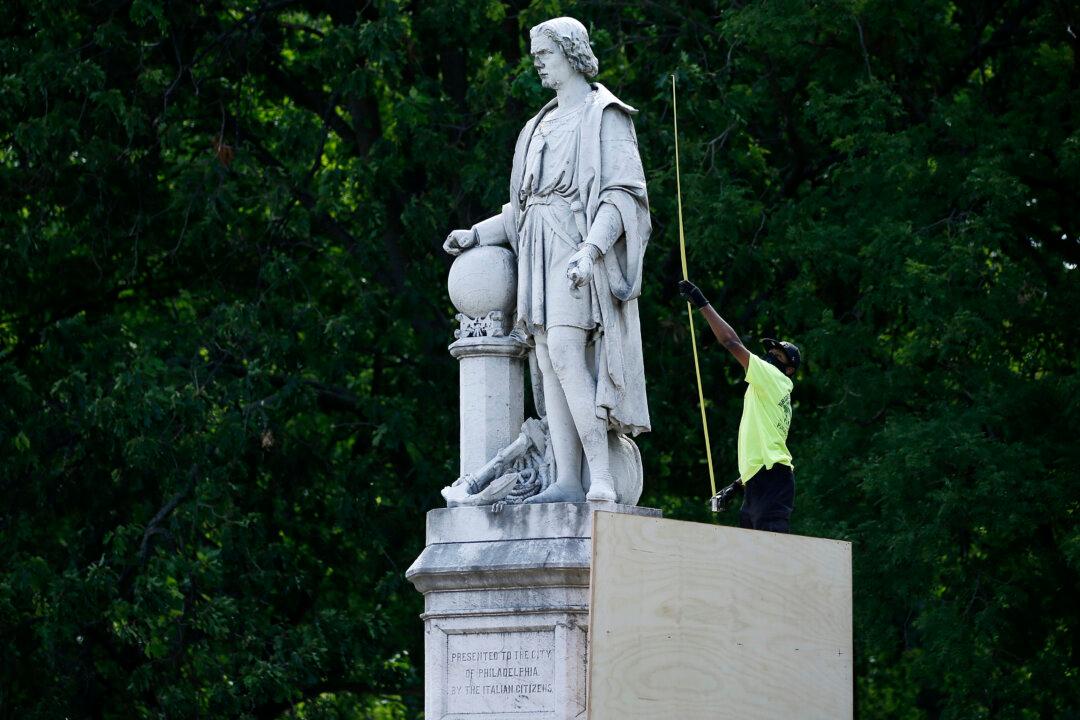PHILADELPHIA—A statue of Christopher Columbus can remain in south Philadelphia, a judge ruled, reversing the city’s decision to remove it after the explorer became a focus of protesters amid nationwide demonstrations after the police killing of George Floyd.
Last year’s decision to remove the now-boarded-up statue from Marconi Plaza was unsupported by law and based on insufficient evidence, Common Pleas Court Judge Paula Patrick said.





